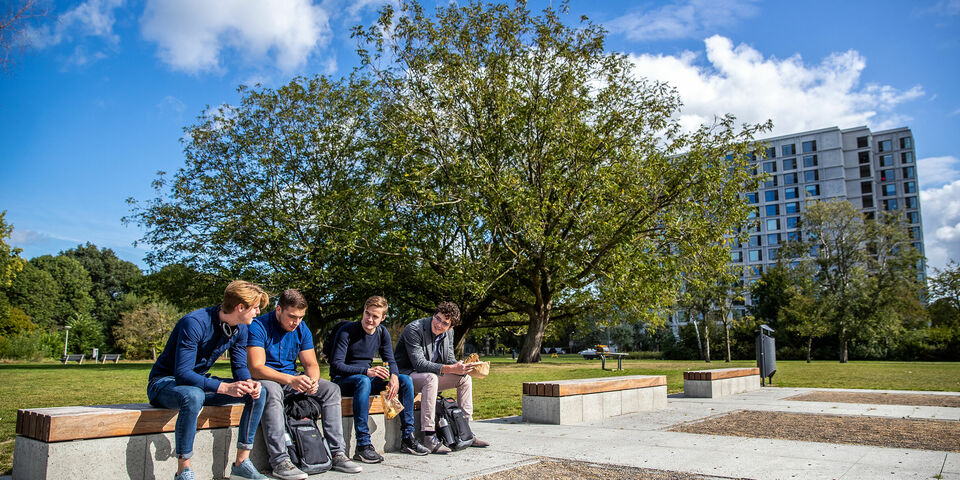Suspending international recruitment. What does that mean?
Minister Robbert Dijkgraaf has issued a letter requesting universities and universities of applied sciences to refrain from participating in international education fairs until further notice. This way, he hopes to put a halt to the recruitment of international students, in the absence of control measures to limit the intake. In February, the minister will debate the issue with the Lower House. TU/e heeds the request.
"The halt on active recruitment of international students primarily means that we will not be going abroad physically in January and February”, says Maarten van den Dungen, interim Director of the Communication Expertise Center. “In principle, TU/e could make use of the two exceptions made by the minister, but out of respect for the minister and the Lower House, the Executive Board wants to comply with the request pending the debate.”
The exceptions Van den Dungen refers to are a result of the “room for customization for sectors facing personnel shortages and depopulating regions” proposed by the minister. “Our technical programs fall under the sectors facing shortages (as do healthcare and education - ed.). There, the supply of Dutch students falls short of demand. Geographically, TU/e is located in a depopulating region, which means that its population is aging more rapidly than in the rest of the Netherlands. The latter does not apply to Delft University of Technology.”
Recruiting or informing?
This morning, the CEC director met with the Executive Board to discuss visits to secondary schools abroad. For the last couple of years, the CEC, along with fellow universities within the Dutch Research Universities Consortium, has been making visits to international schools throughout Europe to meet with student counselors and secondary school students. “We see this as informing and not recruiting," says Van den Dungen, "because we don’t actively gather information for follow-up efforts there. However, the Executive Board feels it’s more important to show solidarity with the other universities.”
Van den Dungen does feel a sense of obligation towards students with whom contact has already been established. “We will continue to inform international students with whom we have already established a relationship about online activities such as the Master Live Q&As in order to help them choose the right study program.”
Advantages
Van den Dungen hopes that the international student intake will be given a fair chance during the debate in February. “We often focus on the downsides, such as the use of English and the housing shortage, but there are also positive side effects. More international talent leads to increased business activity, more innovations and higher tax revenues. We would like to hear people talk about retaining students for our labor market. That could be the new focus of TU/e’s recruitment strategy.”
He hopes that the Lower House will duly consider the added value of the students and that Minister Dijkgraaf will not impose any permanent restrictions. The number of students at TU/e has slightly increased this year, but that is entirely due to international students.


Discussion